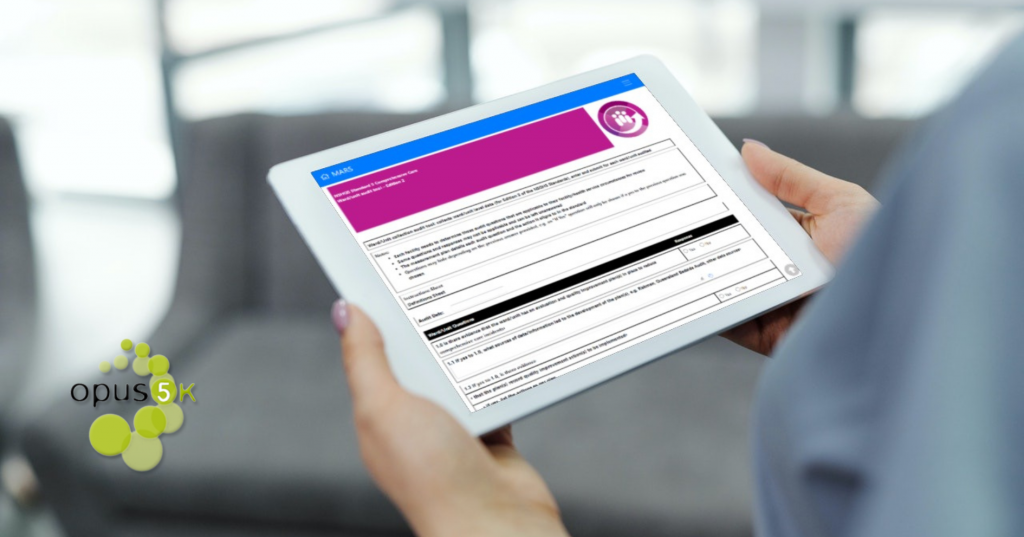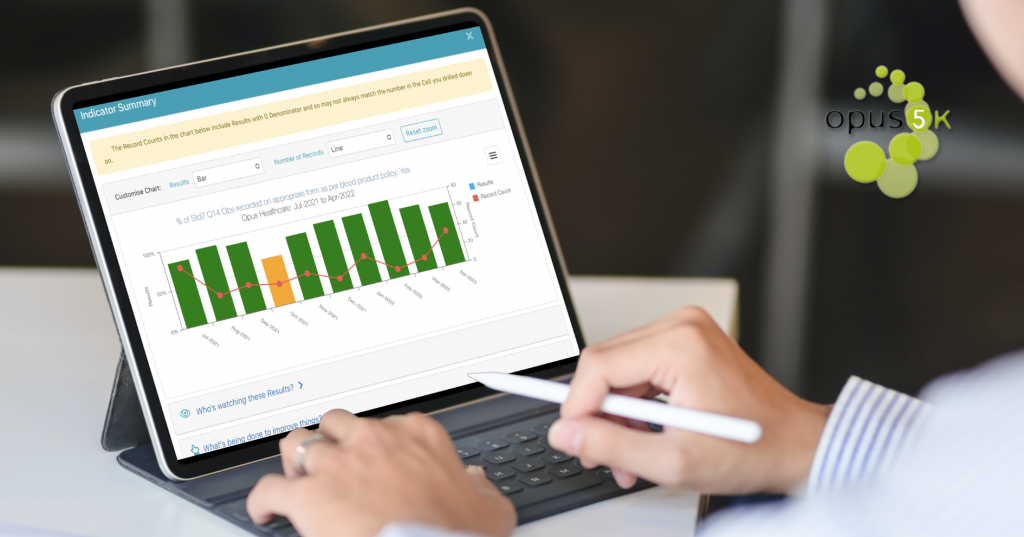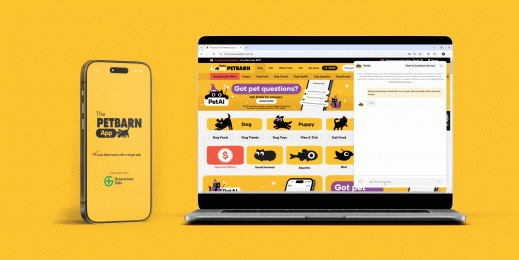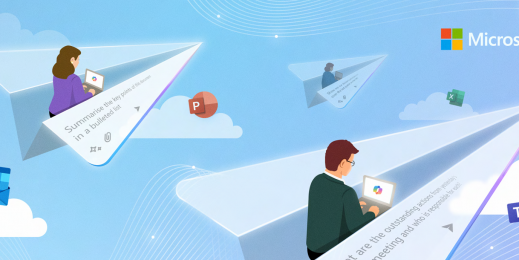
Opus 5K’s latest solution is harnessing Azure Open AI to transform how the healthcare industry collects and uses data
Healthcare organisations like hospitals, aged care providers and community care organisations are constantly collecting data, whether for regulatory compliance or for internal management and quality control processes. The challenge for these organisations is how to make the collection as efficient as possible, then optimise the use of their data once it is collected.
That’s why Opus 5K developed MARS. Built on Azure, MARS is a fully cloud-hosted, device-agnostic, versatile system that can cater to the needs of users in whatever setting they are working. The built-in security and productivity features of Azure are especially useful for frontline workers documenting patient information in clinical or community settings.
With MARS, Opus 5K is also pushing the envelope in applying innovative new technologies like AI to transform and reimagine healthcare.
Microsoft caught up with Hassan Kani, Founder and Director of Opus 5K, to learn more.
Microsoft (MSFT): What are some of the biggest challenges and opportunities in technology for healthcare right now?
Hassan Kani (HK): As the healthcare industry embraces technology, it is capturing vast amounts of data. The challenge here is determining how to effectively allocate resources to manage that ever-increasing data mountain.
We are hearing the term ‘audit fatigue’ more and more now, referring to how healthcare providers are having to commit more time to collecting and analysing data – that’s time taken away from the patient. What the industry needs is clever strategies for managing the data deluge so we can gain meaningful insights from data to improve health outcomes.
That’s where healthcare technology solutions like ours come in. MARS aims to streamline the process of data collection and then create a logical flow-through to actions for users, based on an automated analysis of the data collected.
In other words, it’s no longer just about collecting data, but about transforming that data into informed, actionable insights and positive change. That is how the industry will accelerate and evolve.
MSFT: How is MARS a game changer for the healthcare system?
HK: Before using our system, many of our clients relied on manual processes that were time-consuming and prone to error. This also meant there were no opportunities to centrally coordinate the data management framework. No opportunities for follow-ups, reminders, a single source of truth or anything else. This made it difficult to get an accurate and comprehensive picture of their organisation’s compliance with various regulations and standards.
MARS has identified those inefficiencies. It provides clients with a centrally managed platform with a range of collection tools, real-time analytics with automated alerts and report distributions, and action-driven dashboards to promote corrective actions based on the insights gleaned from the data.
Basically, clients can now plug in data, view their results and spin up corrective actions within seconds. This is something that was just not possible with the old, manual processes.
MSFT: What are some of MARS’ most valuable features and what impact do they have on healthcare outcomes?
HK: MARS goes far beyond data collection. Our aim with the solution is to make positive change an attainable goal by optimising every bit of data that the system collects.
For example, MARS can automatically distribute user-friendly, colour-coded reports to its stakeholders on user-defined schedules. It also proactively notifies users if any KPI thresholds have been breached, alleviating the need to constantly run reports and analyse data.
Additionally, MARS has a workflow feature that raises alerts and triggers follow-up data collection in real time. This codifies and embeds the policies, procedures and governance frameworks of an organisation into a single system. And it gives organisations irrefutable proof of the quality control mechanisms they have in place.
MARS also has an Actions Register feature, which gives clients a central view of all the quality improvement initiatives they are undertaking, whether these are related to MARS data collection or not. And MARS Dashboards clearly show the progress of each initiative against KPIs.
In terms of regulatory compliance, the MARS XChange online sharing platform allows clients to share their data collection designs and collaborate with other clients. That’s important because many of our clients work towards the same industry standards, and there is considerable overlap in the data they rely on to prove that compliance.
MSFT: How does MARS harness Azure Open AI?
HK: We’re using Azure Open AI to automate both the data collection and the actions part of the solution. So for example, we’ve built MARS to query the Azure Open AI service for generic guidance, based on the industry and the specific area that a user wants to hone in on.
For example, “suggest some questions that could be included when doing blood management audits in a healthcare organisation”.
Here, Azure Open AI’s powerful capabilities really help to ensure the questions are effective, and make the process of turning them into fully functional data forms highly efficient.
At the same time, the Azure Open AI technology can optimise the data to enable positive change. For example, when the MARS Dashboards identify an underperforming KPI, we utilise context-specific, carefully designed prompts to tease out some best practice measures that can be used as the basis for improvement actions within the organisation. Again, MARS turns the suggested action items into enforceable, reportable actions assigned to specific users with a click of a button.
Our AI modules have just been launched, so it’s still early days for us. But after conducting several preview sessions with clients, we’re thrilled by the possibilities. The technology promises to enhance the quality of the data collected and encourage responsible, informed decision-making. We’re confident that this can improve patient outcomes.
MSFT: What’s the response been to MARS so far and what do you think the future holds – both for the product and the healthcare industry?
HK: We’ve been seeing some really exciting utilisations of MARS; use cases that we could never have imagined when we initially designed the system. That includes a community service provider applying the tool to help it with its fleet vehicle inspection reports, and a hospital using it for a satisfaction survey following the introduction of a new meal menu.
We’ve also seen insurance forms, vaccination registers, employee and HR files, maternity forms, COVID declaration forms, and a whole host of occupational health and safety collections. There are no design constraints on the type of collection tools clients can build.
Right now, we already have many of Australia’s largest healthcare providers on board and are exploring options to take MARS to the international market.
Azure Open AI’s powerful capabilities also make it easy and fast to get the solution up and running. But it’s important to remember that the solution isn’t limited to any one industry. MARS can collect data, analyse it and promote the use of that data to improve outcomes – across sectors.
I always tell clients that even if they start with just collecting data for compliance obligations, don’t stop there. Walk around your office and find all those instances where data is being collected manually and shift it all to MARS. It’s the perfect opportunity to go digital. And with AI included in its features, the possibilities really are endless.


















